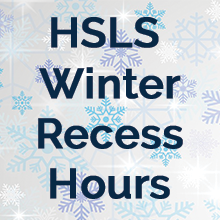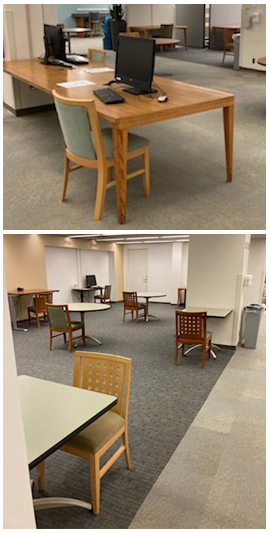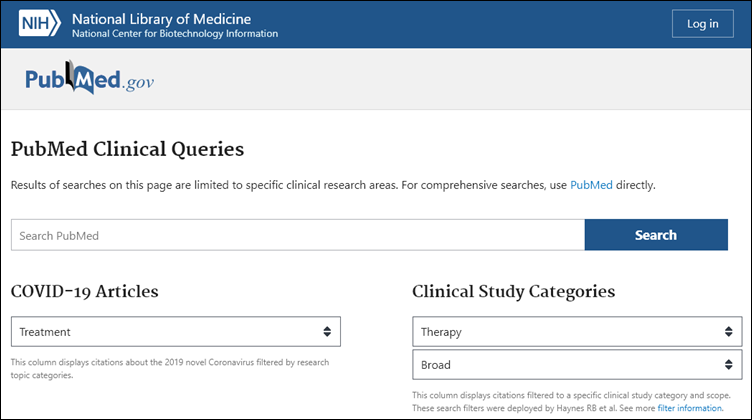 Monday, December 14, 2020–Friday, December 18, 2020: Full virtual service with support for book pickup and drop off from 7 a.m.–6 p.m. Falk Library printing and study spaces CLOSED.
Monday, December 14, 2020–Friday, December 18, 2020: Full virtual service with support for book pickup and drop off from 7 a.m.–6 p.m. Falk Library printing and study spaces CLOSED.
Saturday, December 19, 2020–Sunday, January 3, 2021: CLOSED. Please report any issues with hsls.pitt.edu or online resources to medlibq@pitt.edu. Questions and requests for other services sent over the winter recess break will be addressed when the library re-opens on January 4.
Monday, January 4, 2021–Friday, January 8, 2021: Full virtual service with support for book pickup and drop off from 7 a.m.–6 p.m. Falk Library printing and study spaces CLOSED. Continue reading


 Due to
Due to 